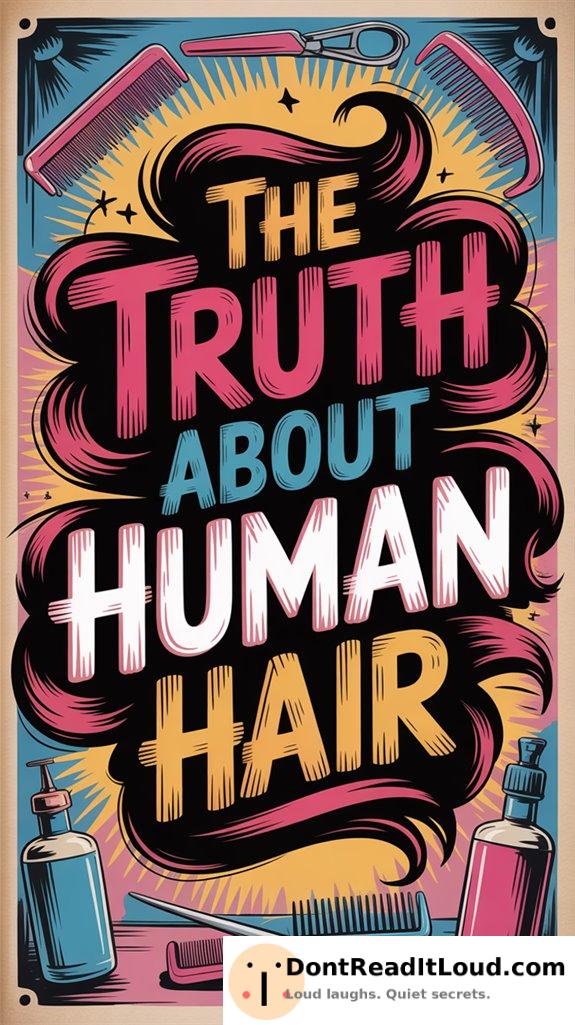
Human hair is more than just a feature. Your hair’s biology involves follicles producing keratin, giving it strength. There are many myths—trimming doesn’t make hair grow faster, and washing daily won’t lead to hair loss. Hair holds cultural significance, such as sumo wrestlers’ topknots in Japan or offerings in India. It can also provide important clues about your health. Around the world, hair reflects both personal style and cultural meaning. There’s much more to explore about how your hair influences appearance and well-being.
The Biology of Hair: Understanding Its Structure and Growth
When you dive into the biology of hair, you’ll discover it’s surprisingly intricate. Picture your hair follicles as tiny factories, constantly producing keratin. These structures, hidden beneath your scalp, work around the clock to create this essential protein.
Keratin forms the backbone of your hair, making it both strong and flexible, ready to handle whatever your day brings.
Hair isn’t just about appearance; it plays an important role as part of your body. So, the next time you brush your hair, remember the dedicated work happening beneath your scalp.
Common Myths and Misconceptions About Hair
Despite the wealth of information available today, misconceptions about hair care and growth persist. Who knew hair myths could be as stubborn as a bad hair day? Let’s untangle some of these myths.
First up, trimming your hair doesn’t make it grow faster. Haircuts don’t speed up growth; they simply help prevent split ends from spreading.
Next, washing your hair every day won’t cause excessive hair loss. Daily washing might leave your hair a bit dry, but it doesn’t lead to more shedding.
Also, don’t worry that plucking one gray hair will cause more to appear. Pulling out a single gray hair won’t turn the rest of your hair gray.
Cultural Significance: How Hair Defines Identity Around the World
Hair is more than just strands growing from your scalp; it’s a powerful symbol of identity and cultural heritage across the globe. Honestly, if your hair could talk, it’d probably spill secrets about your ancestors and their hair-raising choices. Cultures worldwide have woven hair rituals into their traditions, turning everyday styles into meaningful expressions.
In Japan, sumo wrestlers wear distinctive topknots, while in India, hair offerings are acts of deep devotion. Ever tried translating your bad hair day into an ancient rite of passage? In the Maasai tribe, warriors braid their hair to signify prestige.
The Role of Hair in Health and Science
Ever wondered why your hair sometimes behaves unpredictably? It can reveal more than just your style—it offers clues about your health and genetics. Hair pigmentation isn’t only about appearance; it can signal underlying health conditions and your ancestral roots. Your hair can serve as a subtle indicator of your overall well-being.
Hair loss is a common concern, but advances in science provide a range of solutions. Treatments like topical medications and laser therapy aim to help you maintain a fuller head of hair.
Conclusion
You’ve explored the fascinating world of human hair, discovering its complex biology and unique growth patterns. Along the way, you’ve dispelled common myths and learned about hair’s deep cultural meaning worldwide. Understanding hair’s impact on health and science highlights its vital role in our lives. As you move forward, appreciate your own hair journey—it’s a reflection of your identity, culture, and well-being.



